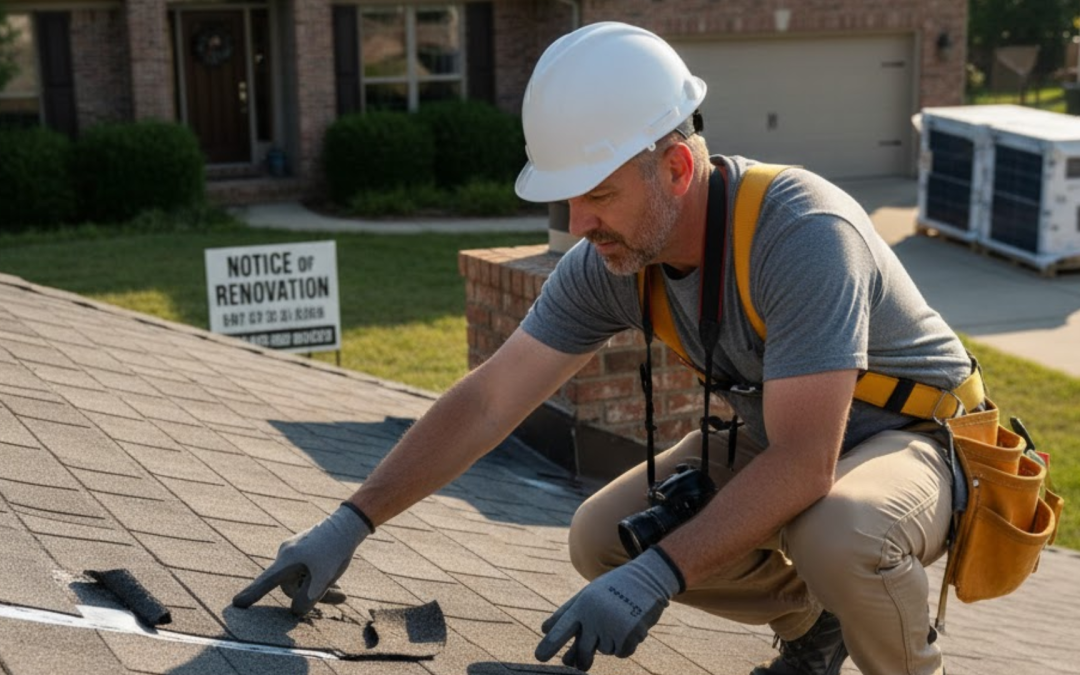Preparing your roof before a major renovation or solar panel installation is essential to ensure long-term durability and performance. A well-prepared roof prevents costly damage, supports heavy installations, and maximizes energy efficiency. Here’s a complete guide to help you get your roof ready before taking on any major upgrade or solar panel project.
1. Conduct a Professional Roof Inspection
Before any renovation or solar installation begins, always schedule a professional roof inspection. Roofing experts can detect hidden damage, leaks, or structural weaknesses that may compromise your project. Identifying these issues early helps prevent complications during installation and ensures your roof can handle additional weight or structural changes safely. A detailed inspection report will give you a clear overview of repairs or replacements needed beforehand.
After receiving the inspection results, act on any recommended repairs immediately. Whether it’s fixing cracks, replacing shingles, or addressing moisture buildup, these tasks ensure the roof is in optimal condition. A stable and leak-free surface creates a solid foundation for any construction or solar mounting work. Investing in inspection and repairs before the renovation helps save time, money, and effort in the long term.
2. Check the Roof’s Structural Integrity
Your roof’s structural integrity is critical when planning major upgrades. Heavy equipment such as solar panels adds extra load to the roof, making it vital to ensure that the rafters and underlayment can support it. Engaging a qualified contractor or engineer to assess load-bearing capacity can prevent accidents, sagging, or collapse during installation. A structurally sound roof also guarantees that your new system will remain stable for years to come.
If any weaknesses are found, reinforce the roof’s framework before proceeding. This may include replacing damaged trusses or upgrading materials to improve load distribution. Strengthening your roof structure in advance ensures safety and compliance with building codes. Ignoring this step can lead to structural failure or costly maintenance issues later, so it’s best to make reinforcement a top priority before starting renovations.
3. Clean and Clear the Roof Surface
A clean roof surface is essential for any major renovation or solar panel installation. Dirt, leaves, moss, and debris can interfere with installation work and reduce the effectiveness of adhesives or fasteners. Cleaning the roof also allows for better inspection of underlying materials, revealing hidden issues such as rust or rot. Proper cleaning ensures the surface is safe for contractors to walk on and improves the overall project outcome.
Use professional roof cleaning services if your roof is steep or fragile. Pressure washing or eco-friendly cleaning agents can remove stubborn grime without damaging the roof’s materials. A well-cleaned roof also enhances the appearance of your property, ensuring the finished renovation looks professional. This simple yet crucial step creates the ideal starting point for a smooth and efficient installation process.
4. Repair or Replace Damaged Sections
If your inspection reveals damage, prioritize roof repairs before any major work begins. Even minor cracks or leaks can worsen during renovations or when solar panels are mounted. Repairing these issues prevents water intrusion and ensures that the installation process does not compromise the roof’s waterproofing layer. It’s better to spend a little on repairs now than face expensive rework later due to preventable damage.
In cases where the roof is old or heavily worn, consider full replacement. Installing new materials ensures maximum lifespan and performance under new load conditions. Replacing old shingles or tiles also enhances insulation and energy efficiency, creating a perfect base for solar panels. By addressing structural and material concerns early, you ensure that your new installation will perform effectively for years to come.
5. Ensure Proper Roof Ventilation
Proper ventilation plays a key role in maintaining your roof’s performance during and after renovation. Without good airflow, heat and moisture can build up, leading to mold growth, weakened structures, or reduced solar efficiency. Check your attic vents, ridge vents, and soffit openings to ensure adequate air circulation. A well-ventilated roof also helps regulate temperature and extends the lifespan of your roofing materials.
If your ventilation system is outdated, upgrade it before beginning the renovation. Professional roofers can install additional vents or improve airflow design to meet the new requirements. Improved ventilation not only protects your roof but also enhances overall energy efficiency, making it easier to maintain a comfortable indoor environment. This simple step can significantly impact the success and durability of your project.
6. Plan Electrical and Structural Layouts
For solar installations, planning the electrical and structural layout in advance is essential. Work closely with both your roofer and solar contractor to ensure compatibility between the roof design and solar mounting system. Improper planning can lead to wiring complications, inefficient energy flow, or even roof damage. Coordinating early helps ensure that all installations align perfectly with the roof’s structure.
Additionally, map out cable routes and mounting points to prevent drilling errors that may cause leaks. This pre-planning phase allows for smoother installation and minimizes disruptions once work begins. A well-coordinated approach ensures the roofing materials, structure, and solar panels integrate seamlessly. This careful planning not only boosts energy efficiency but also enhances long-term performance.
7. Check Local Regulations and Permits
Before beginning any roof-related project, verify all local building codes and permit requirements. Many municipalities have specific rules for roof renovations and solar panel installations. These regulations often cover load capacity, fire safety, and energy standards. Securing the necessary permits ensures compliance and prevents project delays or fines during inspections.
Work with licensed contractors who are familiar with local regulations. They can help handle the paperwork and ensure the installation meets all legal standards. Compliance also improves your property’s resale value, as certified renovations are more appealing to buyers. Staying updated on regulations saves time and ensures your project runs smoothly without unexpected legal complications.

